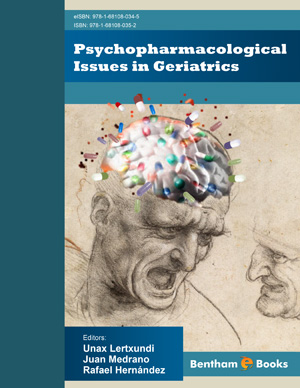Abstract
Antidepressants are drugs used for the treatment of depression and many other psychiatric conditions. Albeit belonging to different chemical families and with a number of mechanisms of action, all of them enhance neurotransmitters at the synaptic cleft. They have a range of adverse effects and effectiveness compared with placebo, according to meta-analysis. However, they have shown to be efficacious in the elderly. Second-generation antidepressants are safer and better tolerated, but not devoid of side effects, something not to be forgotten when treating a population in which frailty and polypharmacy are common.
Keywords: Antidepressants, Arrhythmia, Bipolar disorder, Bupropion, Citalopram, Depression, Duloxetine, Early onset depression, Escitalopram, Hypericum perforatum, Hyponatremia, Late onset depression, Lithium, Mirtazapine, Monoamine oxidease Inhibitors (MAOIs), Obsessive-compulsive disorder, Pharmacokinetic interactions, Rapid cycling, Seizures, Selective serotonin reuptake inhibitors, Serotonin and noradrenalin reuptake inhibitors (SSRIs), Sertraline, Suicide, Trazodone, Tricyclic antidepressants.


















